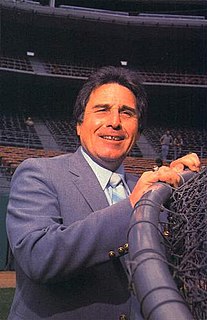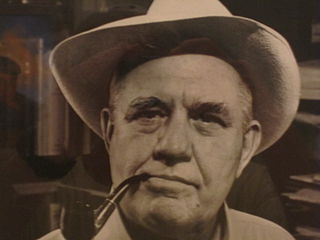A Quote by Charles Kuralt
A true Southerner will never say in 2-3 words what can better be said in 10-12.
Related Quotes
My husband is my most ruthless critic... sometimes he will say, 'It's been said better before.' Of course it has. It's all been said better before. If I thought I had to say it better than anybody else, I'd never start. Better or worse is immaterial. The thing is that it has to be said; by me; ontologically. We each have to say it, to say it our own way. Not of our own will, but as it comes out through us. Good or bad, great or little: that isn't what human creation is about. It is that we have to try; to put it down in pigment, or words, or musical notations, or we die.
I will never leave him. It will be this, always, for as long as he will let me. If I had had words to speak such a thing, I would have. But there were none that seemed big enough for it, to hold that swelling truth. As if he had heard me, he reached for my hand. I did not need to look; his fingers were etched into my memory, slender and petal-veined, strong and quick and never wrong. “Patroclus,” he said. He was always better with words than I.
Most people write the same sentence over and over again. The same number of words-say, 8-10, or 10-12. The same sentence structure. Try to become stretchy-if you generally write 8 words, throw a 20 word sentence in there, and a few three-word shorties. If you're generally a 20 word writer, make sure you throw in some threes, fivers and sevens, just to keep the reader from going crosseyed.
At times , he didn't understand the meaning of the Koran's words . But he said he liked the enhancing sounds the arabic words made as they rolled off his tongue . He said they comforted him , eased his heart . "They'll comfort you too . Mrariam jo , " he said . "You can summon then in your time of your need , and they won't fail you . God's words will never betray you , my girl . (pg.17)
One day - I remember it was a Sabbath afternoon - I came to the synagogue with a book in my hand. I saw a commentary on the Bible by a certain Rabbi Moshe Dessauer, better known as Moses Mendelssohn. An elderly man came up to me - I was then maybe 10 or 12. "What are you studying?" he said. "Dessauer's commentaries," I said. So he gave me a slap on my face.
Her hair is ridiculous," I said. "I know. That was the only thing I said about her that was true. When you say nasty things about people, you should never say the true ones, because you can't really fully and honestly take those back, you know? I mean, there are highlights. And there are streaks. And then there are skunk stripes.
When we can't hold back, or set boundaries, on what comes from our lips, our words are in charge-not us. But we are still responsible for those words. Our words do not come from somewhere outside of us, as if we were a ventriloquist's dummy. They are the product of our hearts. Our saying, "I didn't mean that," is probably better translated, "I didn't want you to know I thought that about you." We need to take responsibility for our words. "But I tell you that men will have to give account on the day of judgment for every careless word they have spoken" (Matt. 12:36).
Some directors don't say much. Michael Mann, for example. I remember on 'The Insider' he never had much to say. He would do a scene, just kind of nod, and then set it up to do it again. And you might do a scene 10 or 12 times or more, the same little 31-second bit. And you could tell he wasn't satisfied, but he wouldn't say much.

































